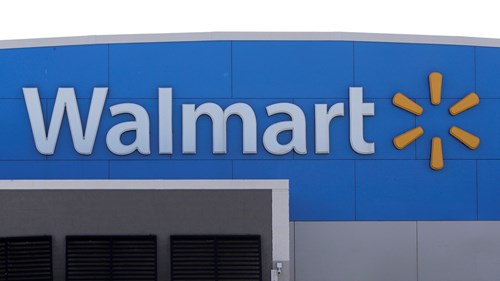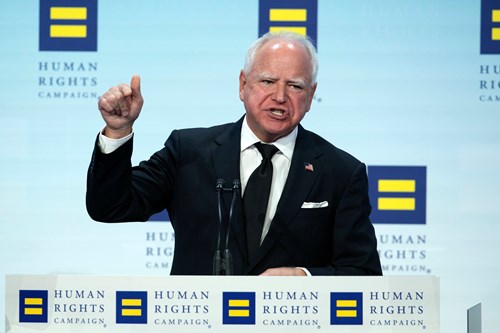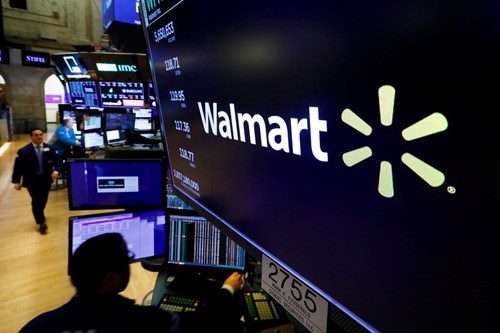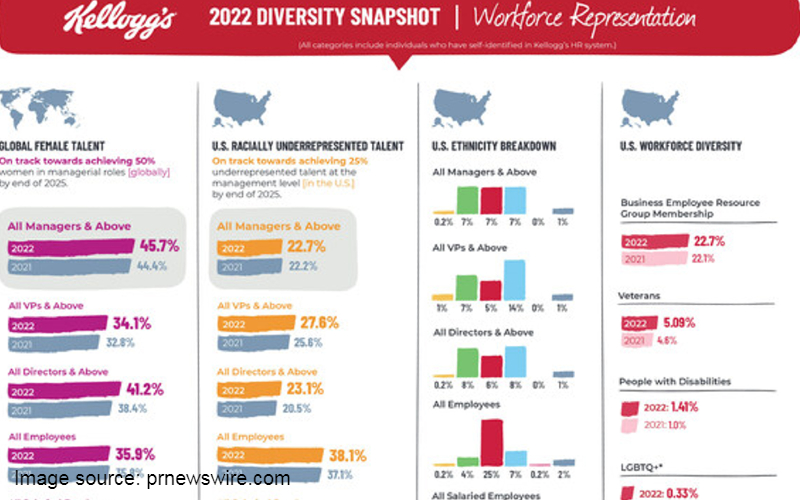It’s not just Walmart, though, the largest retailer in the U.S. announced this week it will make sweeping changes to its DEI program.
Ford, John Deere, Harley-Davidson, Lowe’s, Tractor Supply, Toyota and more have made similar decisions.
The Associated Press, in a double byline story, suggests the changes are brought on by a second Donald Trump administration that is sure “to make dismantling Diversity, Equity and Inclusion programs a priority.”
Steve Soukup, an author and the publisher of The Political Forum, believes other factors are in play.
 In an appearance on Washington Watch Tuesday, he told show host Joseph Backholm the trend has two key elements: uncommon courage from corporations and an uncommon push from one anti-DEI crusader, Robby Starbuck.
In an appearance on Washington Watch Tuesday, he told show host Joseph Backholm the trend has two key elements: uncommon courage from corporations and an uncommon push from one anti-DEI crusader, Robby Starbuck.
“Essentially what it tells us is that there is this pent-up frustration among corporate executives with the way that certain education groups, certain left-wing shareholder groups have written them over the past several years (telling them) to do things that are not in line with the business and not in line with their shareholders’ best interests,” Soukup said.
Regardless of their individual politics, CEOs understand the language of the bottom line. Fearing the pressure applied from certain special interest groups they chose to acquiesce.
“They went along because they were afraid of being singled out just like your average citizen in the (former) Soviet Union. You go along because you don't want to be the only one who speaks out against the government. All of these corporations went along thinking that everybody else believes this, so we better believe it too,” Soukup said.
One special interest group, The Human Rights Campaign, wielded a particularly big stick.
Its Corporate Equality Index has long been a tool for measuring policies, practices and benefits pertinent to the LGBTQ community.
The HRC used the index to produce a “social governance score” which let corporations know if they were in good standing with what equates to 7.6% of U.S. adults, according to Gallup research.
Soukup sees the shift back to political neutrality among corporations continuing.
“Part of what that means is that they're ending their affiliation with the Human Rights Campaign, which is the largest and most prominent of these pressure groups that have pushed these companies towards these policies.”
Big stick not what it used to be
HRC’s influence is waning.
“It’s important to understand that what Walmart has done, what some of these other corporations, Lowe's, Tractor Supply, et cetera, have all done, is decided that they're no longer going to play this game with the Human Rights Campaign where it gets to determine every year whether or not they're an inclusive employer,” Soukup said.
 The silent citizenry of totalitarian regimes in the old Soviet Union needed that one strong voice to spark change.
The silent citizenry of totalitarian regimes in the old Soviet Union needed that one strong voice to spark change.
In the war against DEI that’s been Starbuck, a Cuban-American filmmaker whose X bio says, “I fight for freedom.”
Indeed, he has.
Starbuck has been front and center encouraging change within a number of corporations including Walmart.
“Last week I told execs at @Walmart that I was doing a story on wokeness there. Instead we had productive conversation to find solutions,” Starbuck wrote on X Monday.
Among the changes agreed to by Walmart:
- It will no longer participate in the HRC’s Corporate Equality Index.
- It will monitor its stores to ensure inappropriate sexual/transgender products are not marketed to children.
- It will review its funding LGBTQ Pride events.
- It will not extend its Racial Equity Center, which it established in 2020 as a special five-year initiative.

“In this case, the spark, what we've been missing in this movement for the last four or five years was Robby Starbuck. Robby got on board, and Robby decided that he wanted to carry out sort of investigative journalism attack on some of these companies that have conservative customer bases and yet were embracing these liberal policies,” Soukup said.
“He really pushed them. Once it started, it became unstoppable.”
“It’s like the walls of Jericho are falling, and it’s really an amazing thing to see,” Jerry Bowyer, of Bowyer Research, told AFN.
In addition to Starbuck, Walmart has heard from many others among a concerned base of consumers.
“There are a lot of people who have been engaging. AFA for example has engaged with Walmart quite a bit,” Bowyer said.
A better ‘me too’ movement?
Corporations who perhaps wanted to push back earlier found the courage to take a stand.
Some have said, “‘You know what, we’re gong to get involved in this too because we agree with them. It turns out we’re not alone.’ There’s been a change in the way people understand the existing regime, the existing organizations that have forced these polices on American business,” Soukup said.
 For too long corporations let “distant” stakeholders drive their decisions, Soukup said.
For too long corporations let “distant” stakeholders drive their decisions, Soukup said.
“What we’re seeing here is a return to focusing on stakeholders that are closer and mean more directly to the corporation. It’s a return to standard traditional business practices that is really going to benefit shareholders.”
The movement could have quick-turn financial benefits with restructuring inside corporations, Bowyer said.
“One of the things we’re learning is that a lot of companies didn’t want to do this stuff,” he said. “It was foisted on them by activists, and now this sort of thing gives them the excuse to save money by firing a non-economically productive staff of activists then put that money into growing the business.”
Two-pronged attack needed
Bowyer engaged on behalf of AFA and others about the “lack of Christian employee resource groups at Walmart” as well as a “lack of explicit protection for religious viewpoints.”
The meetings were respectful, but Walmart was “not really open to changing. I think now with social media engaging and inside with shareholders, an inside game and an outside game, you’re starting to see those companies go.”







